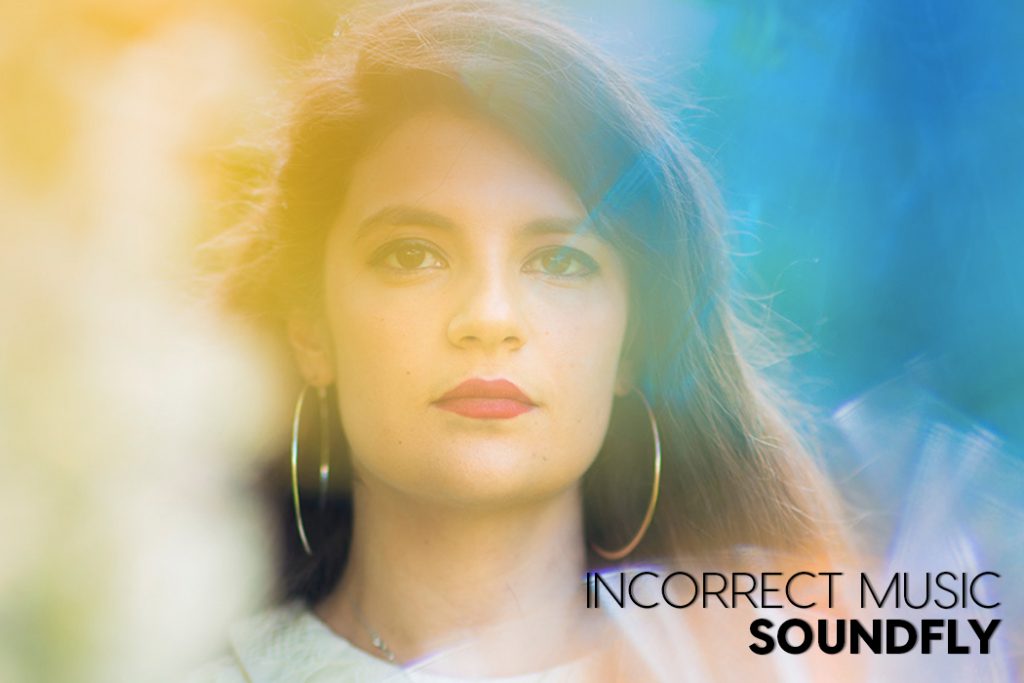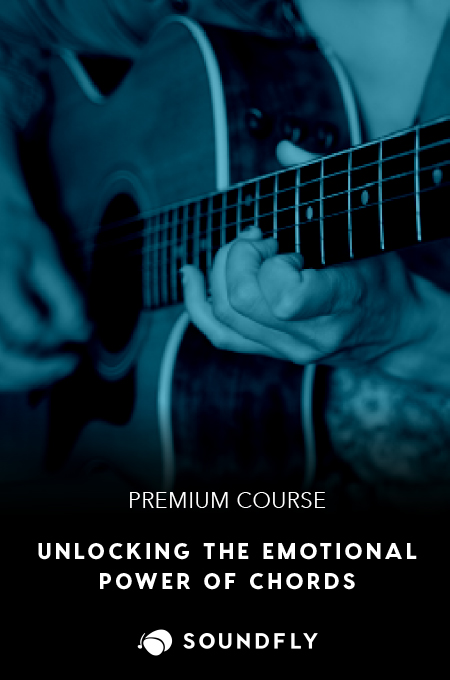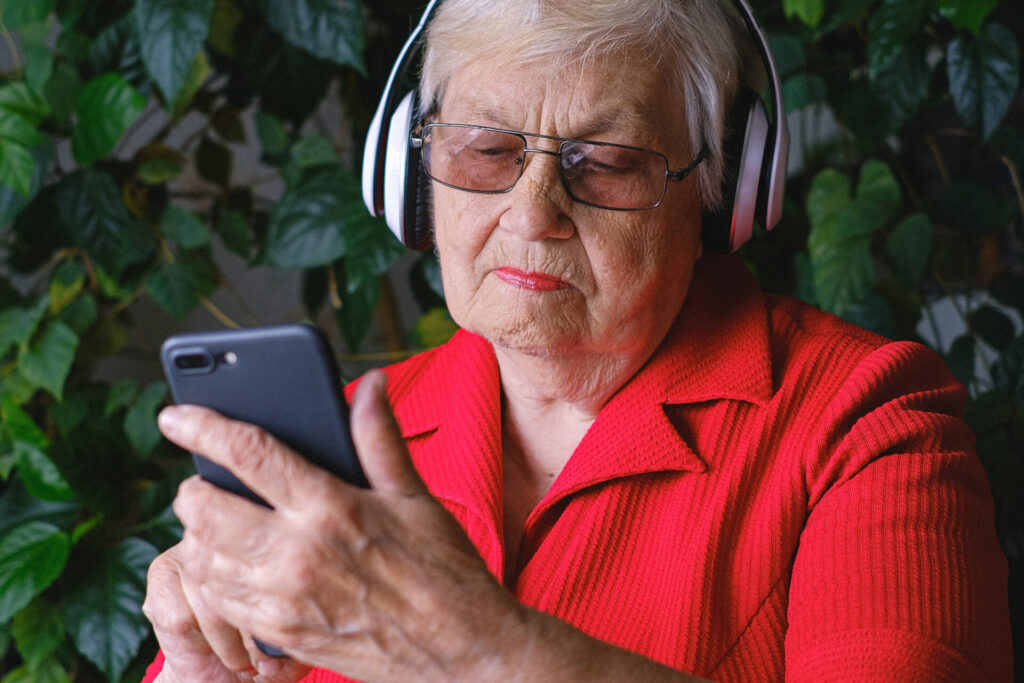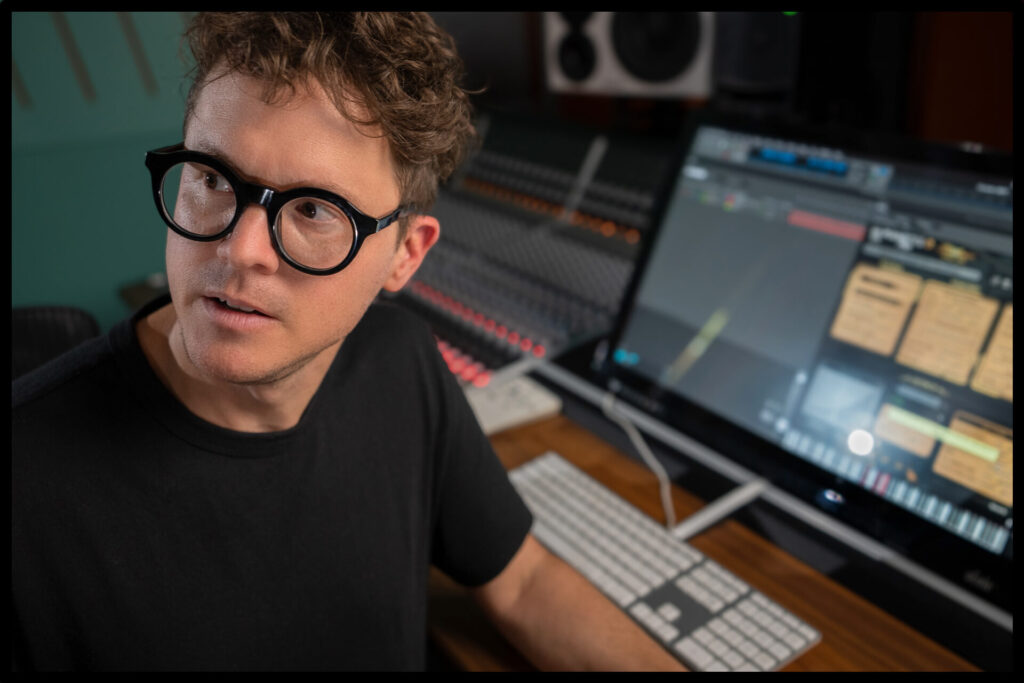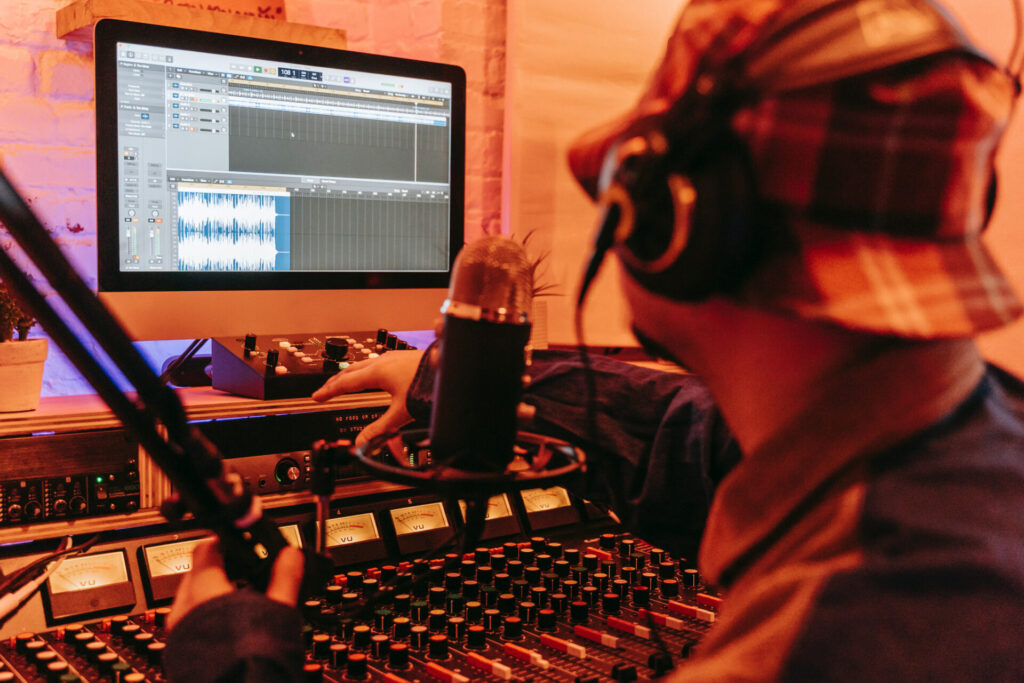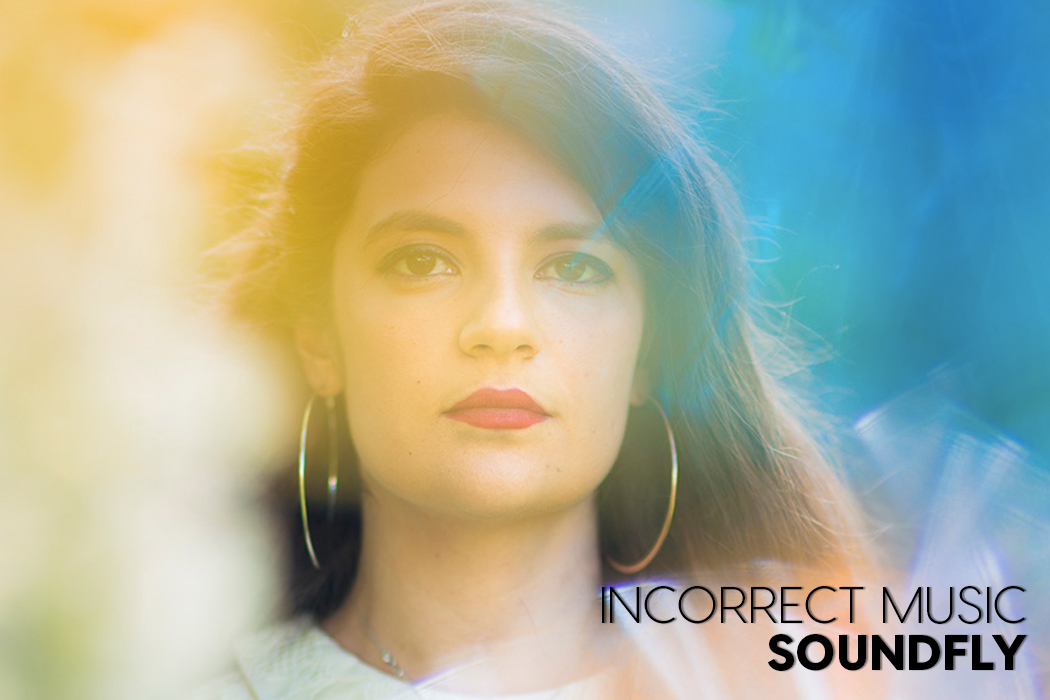
Welcome back to our interview series, Incorrect Music, curated by guitarist, singer, and composer Lora-Faye Åshuvud (of the band Arthur Moon). In this series, we present intimate conversations with artists who are striving to push the boundaries of their process and craft.
Bristol’s Aisha Chaouche (known professionally as Chaouche) has this dynamic-yet-slow vibrato that works in unusual contrast against her electronic pop productions. The tension creates this ethereal feeling of being both propelled forward and slowed down, until her fantastic melisma enters, the melody picks up, and then you’re hurtling.
Chaouche wrote, performed, and produced all the music on her debut full-length, Safe. She says she started with the melodies and then layered in the rest of the mix of live and added electronic production ideas from there. She suggests in the interview below that perhaps the “incorrect” aspect of her work is her sampled nature sounds, which are beautiful and evocative, of course — but I think the thing that makes the music really pass into the territory of the “incorrect” is the way she plays with her own vulnerability as a singer. While she demonstrates exceptional control and training, there are moments that poke through, where runs break down, where the vibrato loses itself, where the pitch degrades.
It’s what makes the record so special — these choices to sing outside technique, outside of the boundaries of the trained voice.
Chaouche’s debut album, Safe, is out now via Night Time Stories.
– Lora-Faye Åshuvud
Interview by Evan Zwisler
The first thing that strikes me about your music is the mix of your ethereal pop vocal style and minimalist electronic beats. Did you write the melodies and lyrics first, or did you start off with the rhythm tracks?
I usually start with the melodies, and stack and layer the vocals, and after that I would usually add all of the harps and strings. When I’m happy with the structure, I’ll move onto adding the rhythms and beats.
What instruments did you play on this record? Did you play all of them yourself?
I love the piano so much — I’d say that’s my main instrument. I actually used my MIDI keyboard to play in all of the other instruments you can hear on the record, using samples from the libraries on my computer. There aren’t any other artists featured on this record, but I would be up for that in future.
What surprised you the most during the recording process?
I think that would probably be the extreme emotional stress that I experienced right in the middle of recording the vocals, which appeared in the form of some intense peaks and troughs. I didn’t really realize it at the time, but as soon as I’d sat back in my chair and accepted it was finished, it was like a rainbow had appeared after a storm.
Why is the record called “Safe”?
All of the tunes are written about difficult memories of my past. There were a few major events that left me feeling afraid and very alone. For a while, I was really struggling emotionally, but after some beautiful relationships with friends, family, and my boyfriend came together, I felt like I’d overcome a few issues — and, therefore, the feeling of finally being “safe.”
“I really enjoy the way creating sonic space can make you feel so calm and collected.”
You mentioned that this album’s overarching theme is “healing.” What were some of the most difficult moments writing and recording this album while trying to work through those emotions?
I think some of the most difficult moments would be when I would start feeling worried and anxious about recording the vocals, and then breaking down and being unable to complete it due to the lyrical content, and having those memories return, only to defeat me. I’m always competing with moments of self-doubt.
Your use of sonic space on this album is very powerful — I might even go so far as to say your “additions of emptiness.” Do you find it difficult to hold back filling up the song more?
Sometimes I do, yes, but I really enjoy the way creating sonic space can make you feel so calm and collected. I think that’s one of my favorite parts of songwriting, to find those moments during the creative process. It’s very satisfying to me, almost crucial to retain my sanity.
What are some of your influences when it comes to minimalist songwriting?
There have been a few over the years. Sufjan Stevens’ The Age of Adz was a very influential album for me when I started producing. The combination of electronic stuff and flowing vocals is stunning. Perhaps another influence would be film scores of Danny Elfman, and how he uses a small collection of instruments to replicate a character’s emotions.
“Every day I’m getting better at producing and understanding my equipment and songwriting abilities, and so naturally, I’m always trying to better myself.”
What is like to play such personal songs live? Have you ever had any issues?
Absolutely, I have. In fact, the thought never occurred to me in the beginning that I may have to perform the songs live. I just didn’t really think about it. I’ve only played five shows, and it’s not gotten any easier. I’m still excited about them, though.
What can audiences expect to see when they come to your show?
Well, Greg [Stoddard, synths and SPD-SX as vocal/effects samplers], Ben [Bishop, synths and SPD-SX as vocal/effects samplers], and Hugo [Bishop, SPD-SX as drums] are my live bandmates, and they are fantastic. They have managed to replicate the record live, and the sound is quite full. We have also created some intense transitions so it’s all quite dreamy.
What’s next for you? Do you feel your next release will be similar to Safe, or do you feel the need to break out of this sound?
More shows and new material. I feel like it will be a natural progression in whatever direction the songwriting takes me. Every day I’m getting better at producing and understanding my equipment and songwriting abilities, and so naturally, I’m always trying to better myself, So I hope it’s the same, but better.
Want to get all of Soundfly’s premium online courses for a low monthly cost?
Subscribe to get unlimited access to all of our course content, an invitation to join our members-only Slack community forum, exclusive perks from partner brands, and massive discounts on personalized mentor sessions for guided learning. Learn what you want, whenever you want, with total freedom.
